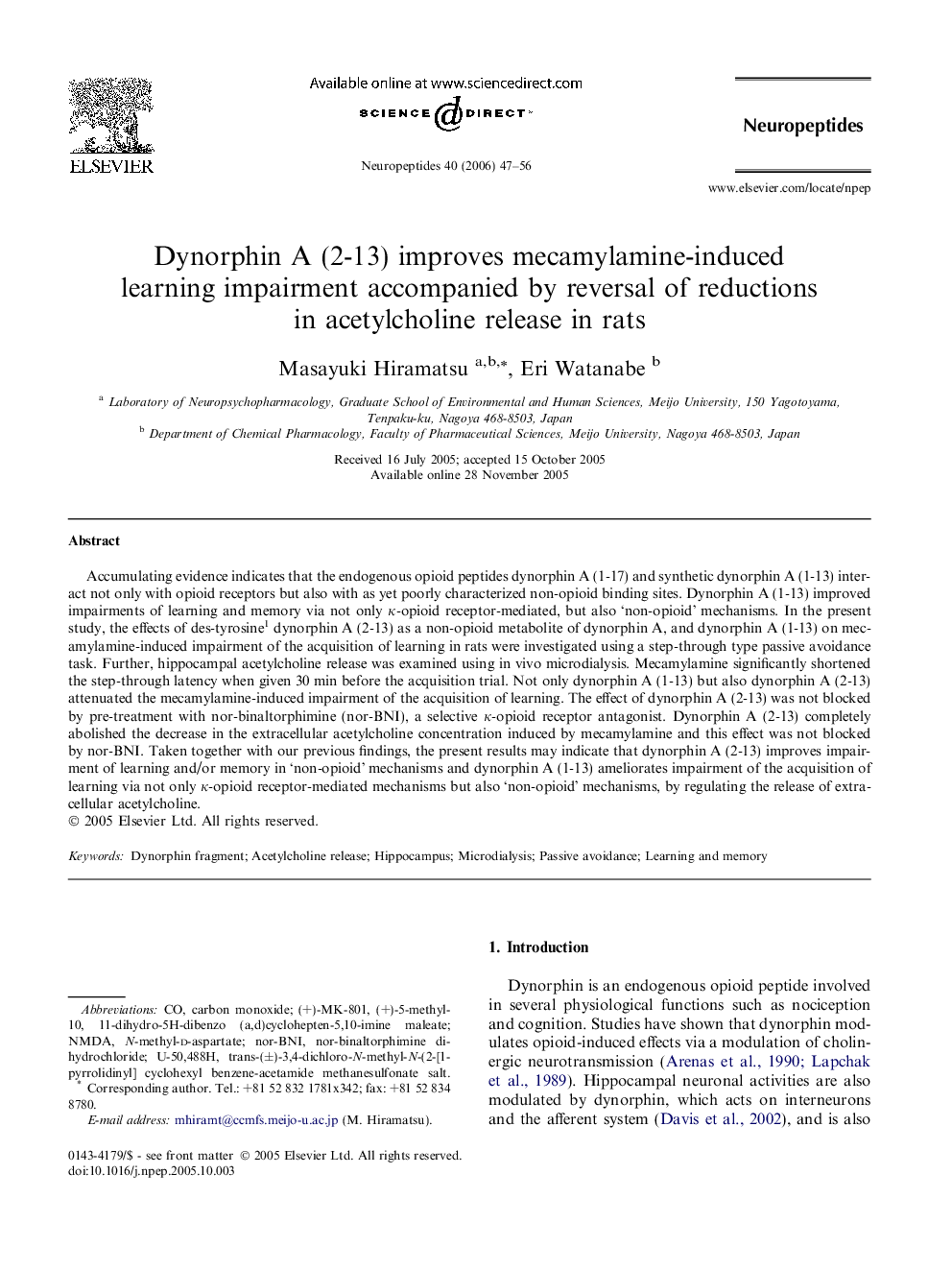| Article ID | Journal | Published Year | Pages | File Type |
|---|---|---|---|---|
| 2808469 | Neuropeptides | 2006 | 10 Pages |
Abstract
Accumulating evidence indicates that the endogenous opioid peptides dynorphin A (1-17) and synthetic dynorphin A (1-13) interact not only with opioid receptors but also with as yet poorly characterized non-opioid binding sites. Dynorphin A (1-13) improved impairments of learning and memory via not only κ-opioid receptor-mediated, but also 'non-opioid' mechanisms. In the present study, the effects of des-tyrosine1 dynorphin A (2-13) as a non-opioid metabolite of dynorphin A, and dynorphin A (1-13) on mecamylamine-induced impairment of the acquisition of learning in rats were investigated using a step-through type passive avoidance task. Further, hippocampal acetylcholine release was examined using in vivo microdialysis. Mecamylamine significantly shortened the step-through latency when given 30 min before the acquisition trial. Not only dynorphin A (1-13) but also dynorphin A (2-13) attenuated the mecamylamine-induced impairment of the acquisition of learning. The effect of dynorphin A (2-13) was not blocked by pre-treatment with nor-binaltorphimine (nor-BNI), a selective κ-opioid receptor antagonist. Dynorphin A (2-13) completely abolished the decrease in the extracellular acetylcholine concentration induced by mecamylamine and this effect was not blocked by nor-BNI. Taken together with our previous findings, the present results may indicate that dynorphin A (2-13) improves impairment of learning and/or memory in 'non-opioid' mechanisms and dynorphin A (1-13) ameliorates impairment of the acquisition of learning via not only κ-opioid receptor-mediated mechanisms but also 'non-opioid' mechanisms, by regulating the release of extracellular acetylcholine.
Keywords
Related Topics
Life Sciences
Biochemistry, Genetics and Molecular Biology
Endocrinology
Authors
Masayuki Hiramatsu, Eri Watanabe,
